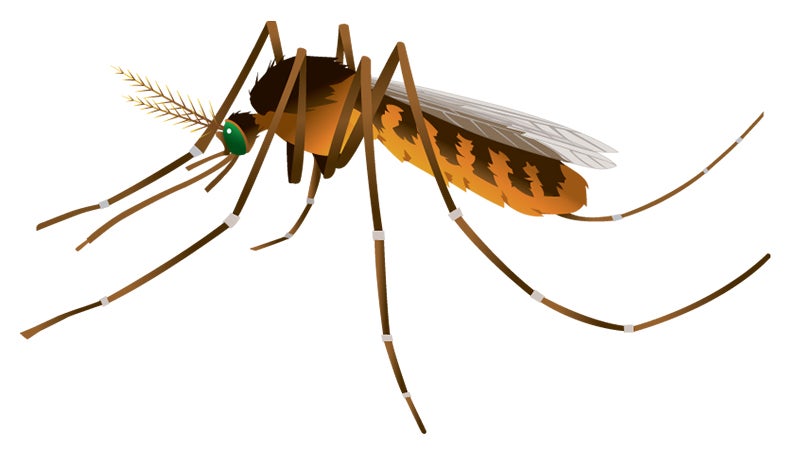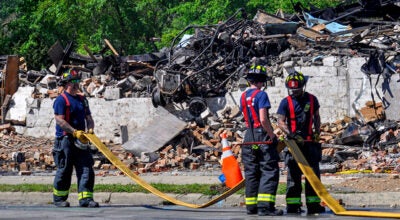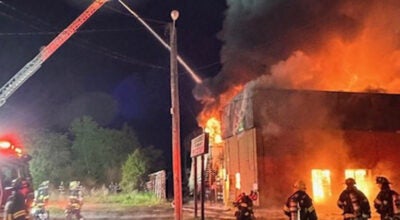West Nile Virus positive mosquitoes detected in city
Published 10:30 am Thursday, August 25, 2022
|
Getting your Trinity Audio player ready...
|
Mosquitoes testing positive for West Nile Virus (WNV) have been detected in the Planter’s Peanut Area and the neighborhood of North Jericho.
A news release from the City of Suffolk said citizens in these areas should be aware that there is increased WNV activity in these areas and they should take the necessary actions to protect themselves while engaging in outdoor activities.
WNV infected individuals can show no symptoms, while others’ symptoms range from mild to severe, according to the release. About 80% of people who are infected with WNV will not show any symptoms at all.
Up to 20 percent of the people who exhibit mild symptoms of WNV have flu-like symptoms and sometimes swollen lymph glands or a skin rash on the chest, stomach and back.
In the most severe of cases that affect about one out of 150 with WNV, individuals develop severe illness that can include high fever, headache, neck stiffness, stupor, disorientation, coma, tremors, convulsions, muscle weakness, vision loss, numbness and paralysis.
Although Eastern Equine Encephalitis (EEE) has not been detected in the city as of this moment, mosquito control officials in the release urged citizens to be aware that it is commonly found yearly in the surveillance.
EEE is a very rare human disease that affects five to 10 humans annually in the United States. This infection in humans begins with mild flu-like symptoms, progresses into disorientation, seizures, coma, encephalitis (an inflammation of the brain) and in the most severe cases individuals die. Many that survive will have “mild to severe brain damage” No human cases of EEE have ever been reported in the City of Suffolk.
Horses are commonly found with EEE in Suffolk. Mosquito Control urges horse owners to vaccinate their horses for EEE and any other insect transmitted diseases that could affect their animals, the release stated. Properly timed and administered vaccinations by a licensed veterinarian can mean a healthy horse during the mosquito season.
Mosquito Control operations are intensifying efforts in these areas because of these positive test confirmations. Officials also have increased mosquito surveillance, treatment of standing water, and spraying for adult mosquitoes.
The news release said residents can greatly decrease their chances of contracting WNV and EEE by protecting themselves from excessive mosquito bites while outdoors by following these recommendations:
- Remain indoors during times of greatest mosquito activity — one hour before dusk to one hour before dawn
- Wear loose, long, and light-colored clothing when outdoors
- Use insect repellents containing DEET according to the label instructions.
Citizens can contribute by eliminating mosquito-breeding areas around their home and neighborhood by following these steps:
- Empty water-holding containers — buckets, drums, bottles, tin cans, wheelbarrows, potted plant trays, etc.
- Properly dispose of used tires
- Clear roof gutters, downspouts and corrugated black drain pipes for any water collection
- Clean wading and swimming pools
- Drain water from tarps
- Place mosquito dunks in stagnant water areas around your home which include ditches and low lying areas
Free mosquito dunks are available to Suffolk citizens at local fire stations 1, 3, 4, 5, 6, 7, 8, 9, 10, Media Department at City Hall, Whaleyville Community Center, East Suffolk Recreation Center, and all Suffolk Public Libraries. In order to get your free mosquito dunks, the person must be 18 years of age or older, have proof of residence in the City of Suffolk, proper picture identification and sign the “Information Sheet” at the fire station. Placing mosquito dunks in stagnant water habitats is a common practice used to eliminate mosquito larvae.
For additional information, visit Virginia Department of Health website at https://bit.ly/3PT2Dk2 for WVN or https://bit.ly/3RbiKL2 for EEE. The Center for Disease Control and Prevention (cdc.org) or Rutgers University (rutgers.edu) websites also offer WNV and EEE advice.
For more information about Suffolk Mosquito Control contact Suffolk Mosquito Control Superintendent Charles Abadam, cabadam@suffolkva.us or 757-514-7609.







